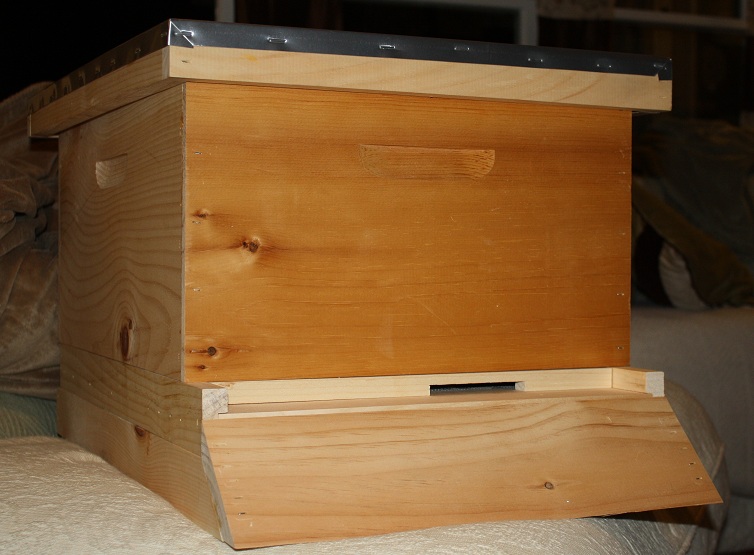I’m getting ready for the new honeybee season. The hive above has a twin. In honor of my first real IT job, the one that started this whole thing I do now, I have named them Calvin and Hobbes. They were the names of the two servers in that little start up company in Seattle.
I digress.
As I mentioned, the hives are getting closer and closer to being ready. I have one of them painted, the other is on tap. I’ve selected the spot in the woods where I’m gonna locate them and now only have to clear branches and level the ground. Well, and obtain concrete blocks and some wood to create a brace; but we’re close. I stopped out at the bee yard where I’m getting some of my bees and we are on track.
In fact, sitting in the sauna at the Y the other night, I was talking to a long time fellow “Executive Workout’er” and he expressed great interest in establishing a hive at his place. He loves the idea and wants the bees to assist in his garden.
Done!
Anyway, I was distressed to see this headline from the local news:
Bee colonies collapsing as workers abandon hives
I have to admit, however, that my first thought was: “There HAS to be an Obama joke in their some where! Workers abandoning hives?
But seriously, the problem exists here in NC too:
Jaynes, president of the North Carolina Beekeepers Association, thought he’d have more bees this spring.
He had 12 hives last fall. Now, only two are active after the bees abandoned the other 10.
It’s a phenomenon called colony collapse disorder, and it’s happening all over North America and Europe. Beekeepers and scientists say it has gotten worse in the past few years.
“The hive just abandons,” Jaynes said. “They’ll abandon everything – everything but the queen and a handful of bees.”
Federal officials say there are a number of factors that lead to colony collapse, and there is no direct link between that and insecticides. But a new Harvard study says there is, especially with one particular pesticide called imidacloprid. The pesticide is part of a class called neonicotinoids, which are commonly used on farms and home gardens.
In the study, 15 of 16 bee hives treated with the pesticide died after six months. Those exposed to the highest levels disappeared first.
I plan to keep decent documentation on my hives so we’ll see how mine do. I just hope not to get stung and get my hives, bees and all, safely to the winter!



